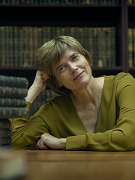

|
Sat6 Apr04:15pm(15 mins)
|
Where:
Teaching Room 7
Presenter:
|

My paper is based on unpublished audio recordings of two courses taught by Joseph Brodsky at the University of Michigan at Ann Arbor (1980) and Mount Holyoke College (1993). The recordings can be found at the Beinecke Library at Yale University and have not yet been discussed by scholars. These are courses on the history of Russian poetry of the 18th and 19th (23 lectures), and world poetry of the 20th centuries (15 lectures).
My focus will be on the literary hierarchy Brodsky created, or his personal literary canon. On the one hand, he tried to build a canon that opposed the Soviet one. For example, Brodsky considered Evgeny Baratynsky, rather than Alexnder Pushkin, to be the main poet of the 19th century, and it was Baratynsky who he devoted the largest number of lectures to in his course on 18th and 19th-century literature. In his lectures on Russian poetry of the 20th century, Brodsky discussed Marina Tsvetaeva, Anna Akhmatova, Boris Pasternak, and Osip Mandelstam poems, but did not mention Alexander Blok or Vladimir Mayakovsky, who were obligatory in Soviet poetry textbooks. Thus, he strongly opposed the Soviet conception of classical poetry.
At the same time, Brodsky insistently seeks to construct a literary hierarchy, thus reproduces the basic patterns of Soviet imperial discourse. He does not doubt that the canon must exist and represents the imperial idea, but although he constructs it as an opposition to the Soviet canon, he does so largely using the methods of colonial communist ideology.
Brodsky replaces some names with others in his list of classic writers, but he does not change the logic of the list itself. His non-Soviet classics turn out to be a reflection of Soviet classics.